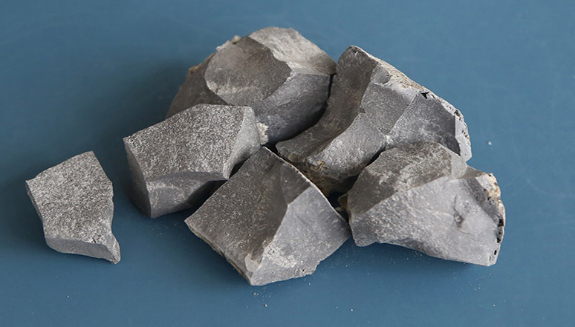
In the realm of steel production, calcium refining has emerged as a crucial technique for enhancing the purity and quality of steel. This article explores the significance of calcium refining in steel production, focusing on its impact on deoxidation, inclusion modification, desulfurization, and grain refinement. By understanding the benefits of calcium refining, steel manufacturers can optimize their processes, increase productivity, and produce high-quality steel that meets the stringent demands of various industries.
Deoxidation is a vital step in steel production to remove oxygen from the molten metal. Calcium refining, typically performed through the addition of calcium alloys like calcium silicon (CaSi) or calcium aluminum (CaAl), facilitates this process. Calcium has a strong affinity for oxygen, forming calcium oxide (CaO) and other compounds. These compounds effectively scavenge the dissolved oxygen, leading to the formation of non-metallic inclusions that are easily removed through slag formation. By promoting deoxidation, calcium refining improves steel purity, reduces the risk of defects, and ensures the production of high-quality steel.
Calcium refining plays a crucial role in modifying and controlling non-metallic inclusions in steel. During the refining process, calcium reacts with impurities such as sulfur, oxygen, and phosphorus, forming stable compounds. These compounds combine with the inclusions, resulting in the formation of calcium-aluminate and calcium-silicate-based inclusions. The modified inclusions have a more stable morphology and are less detrimental to the steel's mechanical properties. By facilitating inclusion modification, calcium refining contributes to the production of cleaner and higher-quality steel.

Reducing the sulfur content in steel is essential for enhancing its mechanical properties. Calcium refining, through the addition of calcium oxide (CaO) or calcium carbonate (CaCO3), is widely used for desulfurization purposes. When calcium compounds are added to the steel melt, they react with sulfur to form calcium sulfide (CaS). Calcium sulfide has a higher melting point than steel, allowing it to separate as slag, facilitating easy removal. Moreover, calcium refining helps reduce the viscosity of the slag, enhancing the efficiency of desulfurization. By effectively removing sulfur, calcium refining improves the mechanical properties and overall quality of the steel.
Grain refinement is a critical aspect of steel production as it directly impacts the steel's strength and toughness. Calcium refining, often in the form of calcium aluminates (CaAl2O4) or calcium silicates (CaSiO3), acts as a grain refiner during solidification. When added to the steel melt, calcium-rich particles serve as nucleation sites for grain formation, restricting grain growth during solidification. This results in the formation of fine-grained microstructures, which enhance the steel's strength, ductility, and resistance to fatigue. By promoting grain refinement, calcium refining improves the structural integrity and mechanical properties of the steel.
The success of calcium refining lies in process optimization and control. Steel manufacturers need to consider factors such as calcium addition rate, reaction conditions, and refining techniques to achieve optimal results. Precise control of these parameters ensures uniform distribution of calcium throughout the steel matrix, enabling consistent and desired refining effects. Advanced monitoring techniques, including thermal analysis and spectroscopy, assist in monitoring and controlling the refining process. Additionally, computational modeling and simulation techniques provide valuable insights into the kinetics and behavior of calcium refining, aiding in process optimization and control.
Advancements in refining techniques and process control systems have contributed to the continuous improvement of calcium refining in steel production. The development of advanced sensors, automated dosing systems, and real-time process monitoring enable more precise and efficient calcium refining. Future advancements may focus on further enhancing refining efficiency, exploring novel refining agents, and expanding the understanding of calcium's interactions with impurities. These advancements will contribute to producing high-quality steel with enhanced mechanical properties and meeting the evolving demands of various industries.
Calcium refining plays a crucial role in steel production, contributing to enhanced purity, improved mechanical properties, and higher-quality steel. Through deoxidation, inclusion modification, desulfurization, and grain refinement, calcium refining optimizes the steelmaking process. The precise control and optimization of calcium addition rates and refining techniques enable steel manufacturers to produce clean, strong, and durable steel for diverse applications. Continued advancements in refining techniques and process control systems will further enhance the efficiency and effectiveness of calcium refining, reinforcing its role in producing high-quality steel.

Write a Message